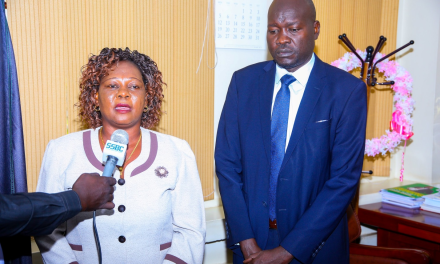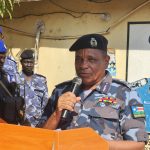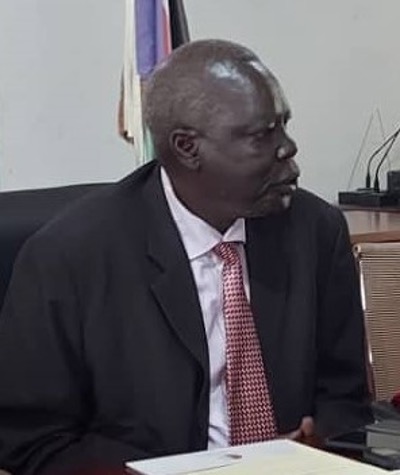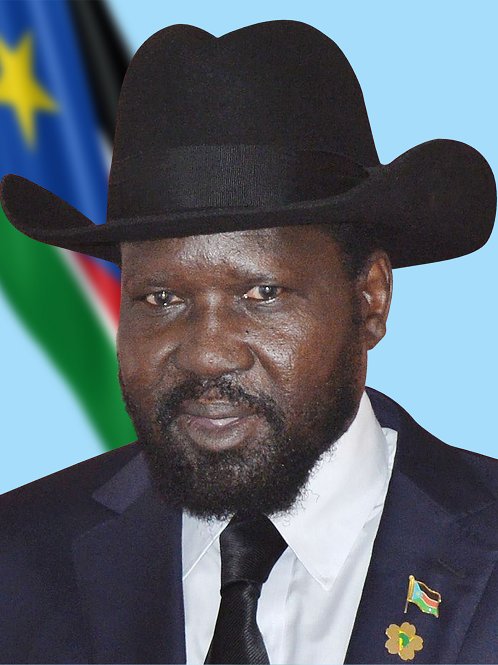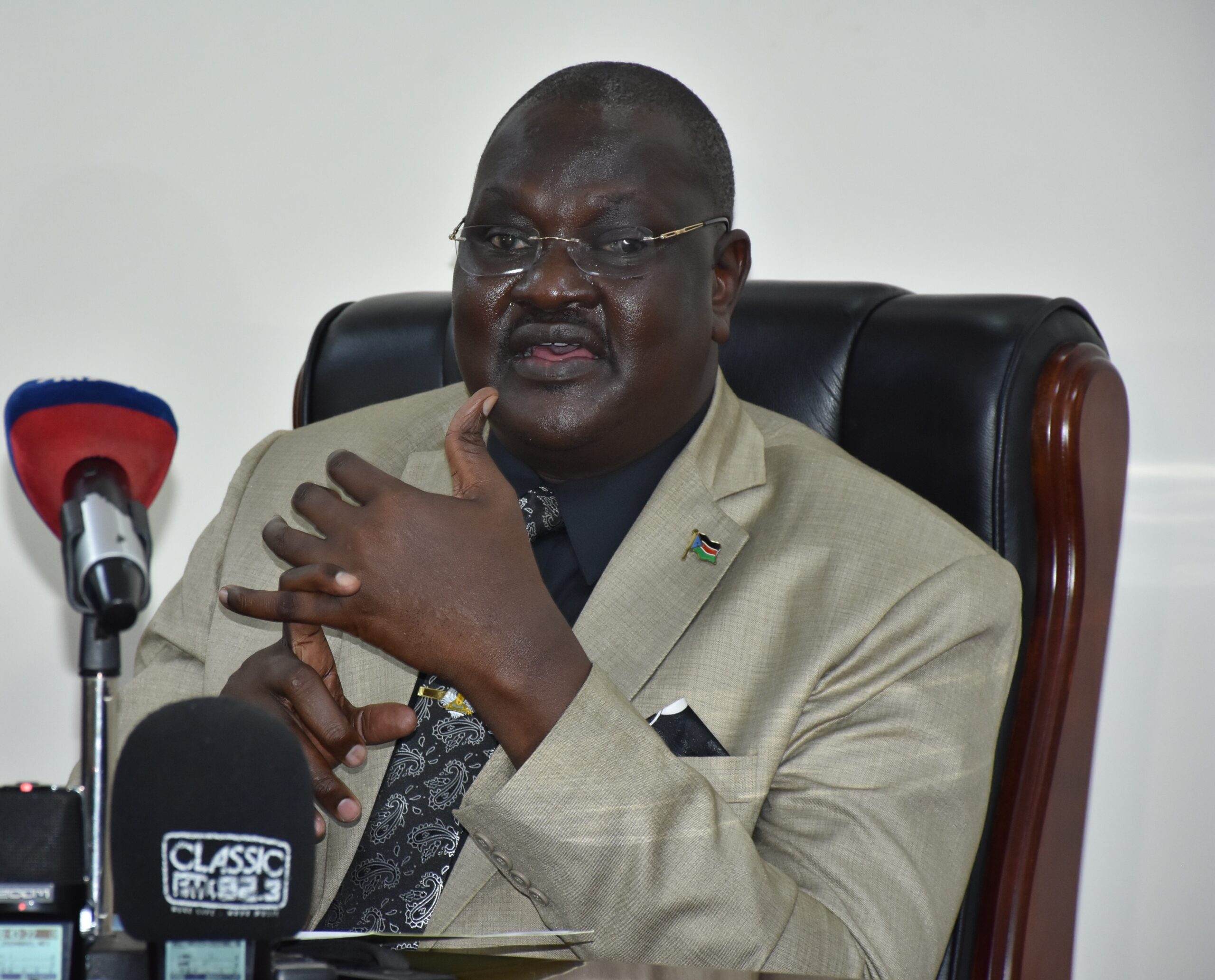
Activist’s perspective on the South Sudan constitution making process
South Sudan is currently undergoing the process of making a new constitution as mandated by the peace agreement.
The deal advocated for a transitional government which was instituted in February 2020.
It’s expected to end by 2023 with the country going for elections after the making of a permanent constitution.
To understand the process, Juba Echo’s reporter Ruot George had an interview with activist Lona Marekaje on what the constitutional making process is.
Q. Tell us about yourself and what you do?
A. Thank you very much. My name is Marekaje Lona. I am a civil society activist and a human rights defender. I head a civil society group known as SSUDEMOP which is South Sudan Engagement Monitoring and Observatory Program.
Q. Briefly what do you mean by constitution making process?
A. Yes, the question of constitution is critical and it’s important that we get to understand and get it rights. As many people know and others may not know, the agreement [R-ARCSS] is explicit on the importance of South Sudan getting into a constitution making during the transitional period and that’s why the entire chapter 6 of the agreement is dedicated for constitution making process. It’s actually the parameters of permanent constitution making process.
And that process is envisaged to be an inclusive process and is envisaged to a process that respect the supremacy of the people, it’s envisaged to be a process that will help the country to develop the constitution that reflect the aspects of federalism because we are moved into federal state that is in the preamble of the agreement as a principle within chapter six of the agreement.
And chapter six has a lot of aspects. Chapter six set the tone, set the mode but it’s not sufficient itself. That’s why it’s provide for a workshop that would set the basis for developing a legislation that would govern the process and that bring in the role of parliament
Q. Has that workshop been done?
A. Yes, that workshop was done in May 2021. Unfortunately, it was done behind closed door which many of us criticized and our point of criticism is that an inclusive constitutional making process should not wait to include people later.
People should know and we should start building momentum right from the conversation during the workshop. The public should already know that it has happened and then the next steps and continuously keep updating people but unfortunately it doesn’t happen. All in all, we are not going to stay complaining about that.
Q. According to the peace deal, there was supposed to be a timeline implementation matrix. What timeline was given for the constitution making process and what critical issues were required for this process to start?
A. The constitution making process was envisaged to take 24 months which is about two years out of the 36 months of the transitional period and the process is envisaged to start at least 6 months into the transitional period.
And the key things that are suppose to be done is to have the workshop, developed the legislation these one was suppose to happen within the first 6 months of the transitional period.
Q. Who was supposed to develop this legislation?
A. Actually it’s parliament that will pass the legislation. So, they will debate the piece of the legislation and then after that the reconstitution of national review commission will happen and then formation of other mechanism.
At the moment after the workshop there is new mechanism which was introduced which is CDC [constitution drafting committee] and that need to be recruited and it’s envisaged to have 13 people and those 13 experts are to be recruited by national review commission so we need to have the national constitution review commission reconstituted as soon as possible but it cannot be done before the act is passed by the parliament. So that is a very important aspects of constitution making process.
Q. It look like most of the mechanism are not formed. We are only left with fifteen months to the end of transitional period. Is this process not going to be based in Juba only?
A. Actually that’s a very good question, if you look at the transitional period, it’s coming to an end. If you look at it as per the agreement without the many amendments it has actually lapsed but with the many adjustment that were done, there was extension of three months 90 days other extensions were done which some were public, some were not public.
So, starting point of the transitional period was also not clear. Some people say that the revitalized transitional government of national unity was established in 2020 February by the formation of the presidency and cabinet. But some of us believed that the concept of government has not changed unless South Sudan has different model.
The concept of the government is that the three arms altogether executives, judiciary and legislature [be reconstituted] that’s when you can say the transitional government of national unity is established. So, when was parliament established or reconstituted? It was in August this year. So it took more than a year plus. So, you realized that all that has delayed the process and is delaying the constitution making process and that has impact on the overall implementation of the agreement because the question is where do we start with in the implementation of the agreement? And that is a very tricky question. Because if that question is not answered.
The politicians who are now in the transitional national legislature, in presidency and in executives will look at it in in their way and their way may not be for the interest of the people because their way could be give us more time and more time continues and then the election doesn’t happen. And then continues and prolong and prolong until when they disagree again because it will be the same constitution that they know how to overthrow, they know how to rebelled against, then they will fight again and that put the country in a very tricky position.
Q. You talked about other mechanisms of the constitution making process. What other mechanisms are there and what are their roles?
A. The mechanisms as mentioned in the agreement other then the national constitutional review committee and the constitutional drafting which was introduced by the workshop in May.
We have the national constitutional conference – NCC which supposed to be a conference that should bring representatives from difference sectors of our society to actualized part of the inclusivity that we are talking about and that will be a body that deliberates and adapt the work that come from the national constitutional review committee – NCRC. Than the other mechanism very important mechanism is much bigger. So, we need to look into the grouping in our society.
We have the civil society but within the civil society we have difference groups, we have religious or faith based, we have business community, we have difference unions and associations, we have doctor’s union, we have other professional unions, we have persons with disability, we have farmers from the country site their voices have to be consider.
I think preparation to national constitutional conference is very very important aspect of this process.
The final mechanism is the constituents’ Assembly – CA. the interesting thing about the constituents’ assembly is that the current legislature will transform itself into constituents’ assembly. this current legislature, you know in other jurisdiction, constituents’ assembly is usually elected by people.
In this case, our parliament is mixed up. Even those who says they were elected, it’s just because we have continued with the extension and extension but their mandate was for that period of time but anyway we can still say they are elected.
So we have mixed where we have appointed members and elected members and that is going to transform into constituents’ assembly. The big question is what powers do they have to alter what come from NCRC which is has done extensive deliberation on drafting by CDC and also setting by the NCC which bring representatives from difference parts of the country.
So this parliament, their roles. This connect me to the bill which is going to be act to govern the process. Many of us are saying that the role of this parliament has be limited to just ratify what come of sending it back.
Parliament should not open bills because they are not representatives of the people and parse, they are appointees.
Q. You talked about politicians overthrowing the constitution. Now president Salva Kiir is talking about election to take place at the end of transitional period and his immediate deputy who the region has been mediating between them has said he does not see any possibility of the election taking place in 2023. Where are we at the civil society, what does this symbolized to the civil society?
A. You know, its’ unfortunate that the six members of presidency [ president and his five vices] seem to have been defeated to build trust and confident among themselves. Still it look like the divisions are very wide, the gaps are still very wide and one would wonder why would Lona says that. Its’ in their statements they contradict each other and sometimes what they speak you ask yourself, was this on consultative based among all the six? Is this the view of all the six or it’s the view of a section of the six? And we say anyway they are leaders, they are speaking because they love the country but if you look keenly in between, sometimes it’s quite controversial.
Its’ unfortunate that we have that situation at hand. What I would say is that if we are to protect the country from that danger of relapsing back again to conflict among them. They need to build confident among themselves.
In regards to election may happen or not. They signed this agreement knowing and I think election should happen because our power had been out there for so long. Our power should revert back to us. It may not be perfect election but people should get back to do what they are supposed to do and eventually we will get to do it properly. I know if we do election, this first election may not be perfects but we will start seeing those people come to campaign.
We will start seeing what manifesto they have, we will start asking them to present their manifesto before we give them another mandate. I think election need to happen and this will eventually give the power back to the people.
We will start then to elect our commissioners. Do you know at the movement, with the current arrangement even commissioners are appointed by decrees? That’s very sad because I can say for a fact that the president or presidency parse do not know the characteristics of the people in the county. It’s human, they cannot know everybody.
So, these appointments are likely to be based on lobby of few people connecting and propelling their candidate but not the candidate of the people. This can only be tolerated for a very short time. The country cannot move like this. People need to get to identify their leaders and elect their leaders and then those leaders will have a robust debate when we talk about representation.
To add something, I think the challenge of the agreement is that the constitution making process is marriage to the to the elections. I think the two needs to be divorce because constitutional making process realistically 24 months is not possible. So, the country gone through war and some parts of the country we cannot reach to, so we can bear to have election that few people give them mandate on us behave.
But having an instrument that govern the country, the social contract between us and those who are governing between our children and those who are governing or between any other person and it has to be done in a thorough way through best practice with other countries.
Constitution cannot be written in 24 months especially in the context like ours. My appeal is for the two to be divorced.
Q. what are the priority points the civil society are pushing to be implemented now?
A. One thing that the civil society is pushing now, now is that the law should be passed. The bill should be table by the parliament.
I heard rumors as I said that the bill is going to be table on Monday [29th November 2021] personally am saying it’s not rights. Parliament have to procedures, there is a plan. Because as of now the country doesn’t have, we know that the parliament hasn’t form specialized committees.
I had a conversation with many of them [parliamentarian] on Tuesday [23rd November] and today is Thursday [25th November] so if they have formed the committees, the committees have to settle in their office before you bring a bill to be discussed.
So, announcing today that a bill will be table on Monday, I hope that will just be to receive the bill but time should be given to this bill for members of parliament to adequately studied the bill, generate their thoughts about it for the public to engage with parliament because we have been doing a lot of consultation on the bill.
I will say this without fear of contradiction that the bill as it stands right now is insufficient. A lot of work needs to be done. As civil society, we started a process and bring in other stakeholders and we have stakeholders’ submission that will be shared with parliamentarians. To include our thoughts on what we think should be added on the bill to be able to have sufficient on the bill.
Q. What is your message to the ordinary South Sudanese?
A. my message to ordinary South Sudanese is that there is not going to be a perfect time. The processes are happening. Fortunately, or unfortunately, currently the current political leaders are in the forefront. We have to engage with them and we have to engage in the ongoing processes whether it’s the constitutional making process or election. And we need to sharp that process.


